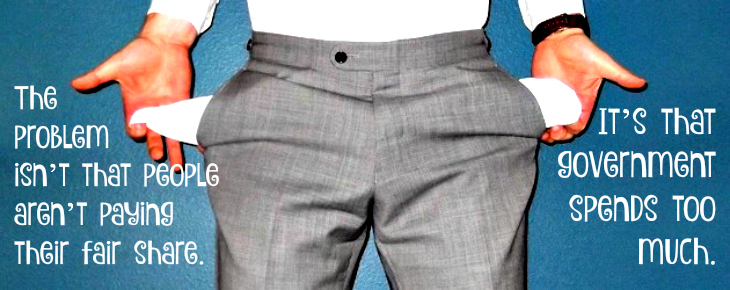During the televised debates and during the campaign stops, we are hearing candidates talk about the problem that various groups are “not paying their fair share.” Democratic candidates lament that: “the wealthy pay too little” in taxes. Other candidates point to loopholes in the tax code that allow individuals and even corporations to pay little or nothing in taxes.
When you hear a candidate say that, you should ask for him or her to be more specific. It is a sound bite intended to get people to cheer or at least to shake their heads in agreement. But the lack of specificity often illustrates that it is nothing more than a campaign slogan meant to generate interest and enthusiasm.
At the least, we should ask: Doesn’t your definition of “fair share” really just mean “more?” Why should we require some people to send more to Washington, when Congress and the president haven’t been able to live within their means?
Thomas Sowell cites one article in the New York Times that does get specific. It says that raising the tax rate on the top one percent would generate about $157 billion a year more in tax revenue. At least here is a specific claim that can be evaluated.
First, we must say that the assumption is likely flawed. Thomas Sowell reminds us that there is a mountain of evidence that raising rates do not automatically mean raising tax revenues. The rich don’t just stand by and make no changes when tax rates go up. They take their money and invest elsewhere or put it into savings.
Second, the additional income is small compared to what the federal government spends. It spends more than $10 billion each day. That supposed windfall in tax revenue would fund the government for about two weeks.
Let’s face it. The bigger problem isn’t that people aren’t paying their fair share. It’s that government spends too much. The federal government doesn’t need more money when it cannot live within its means.
 Listen Online
Listen Online Watch Online
Watch Online Find a Station in Your Area
Find a Station in Your Area











 Listen Now
Listen Now Watch Online
Watch Online
